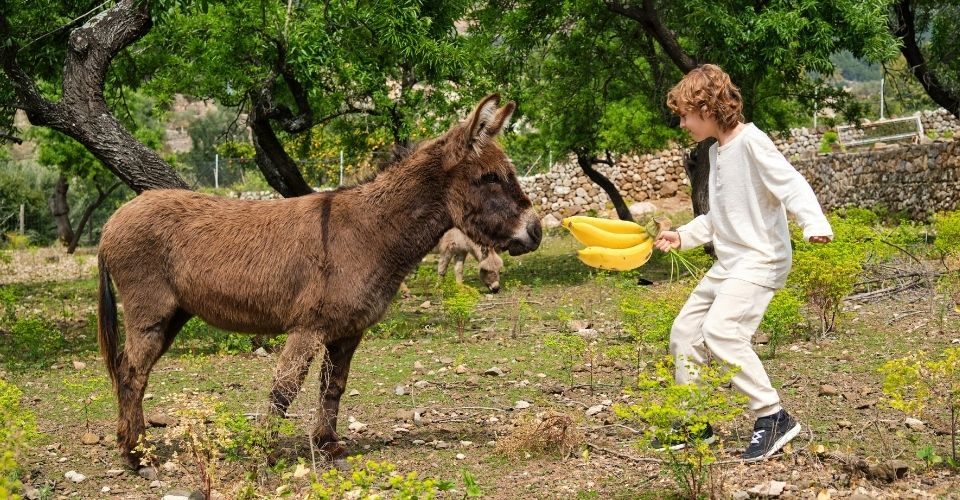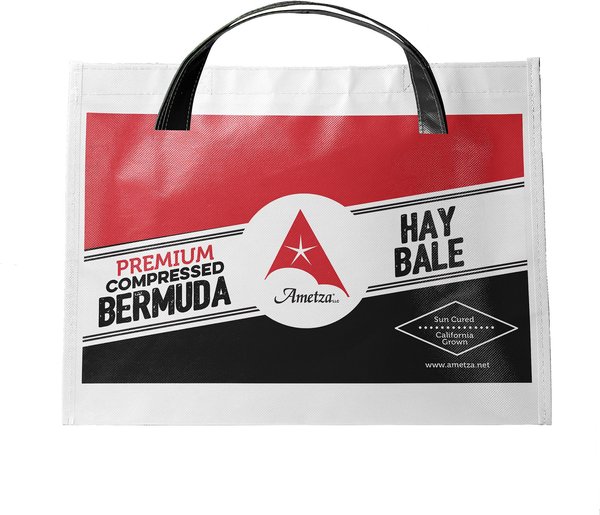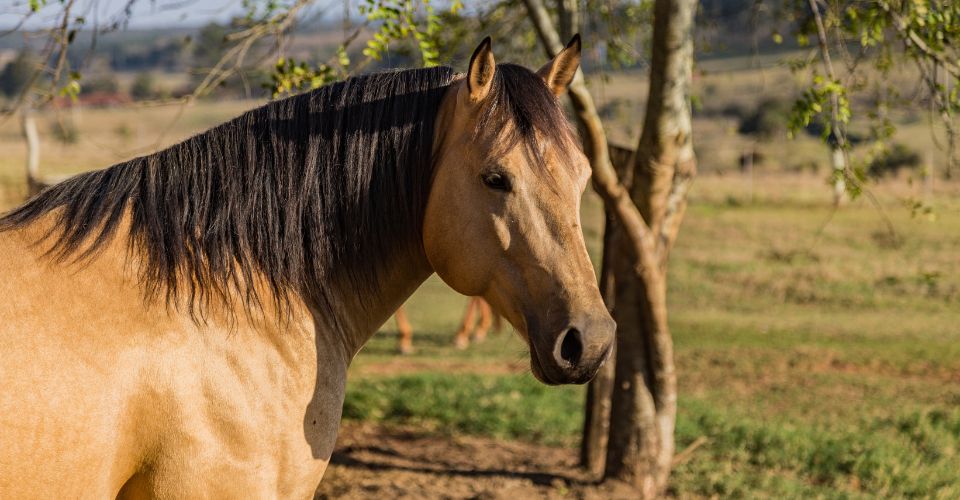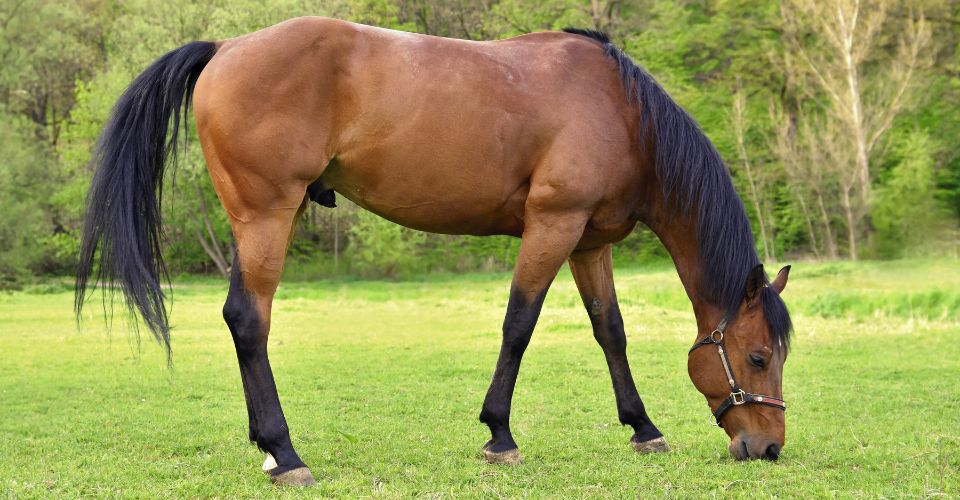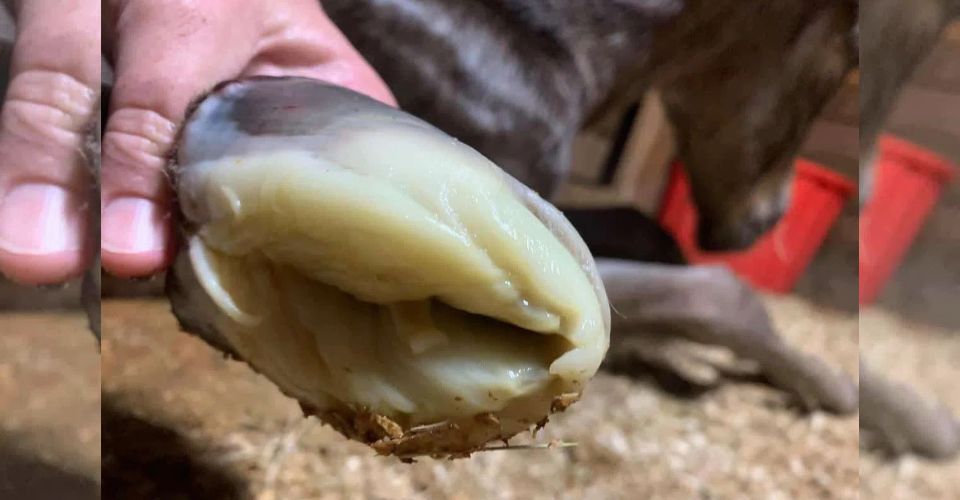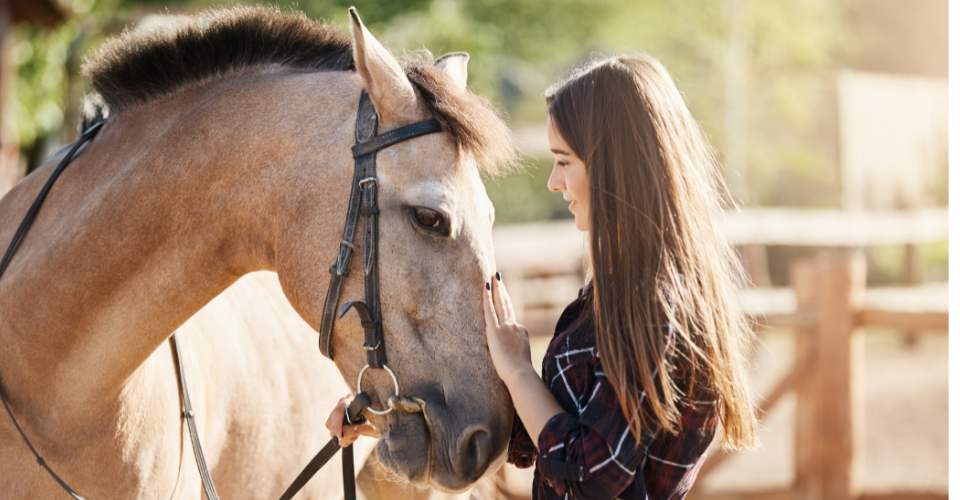Donkeys are popular farm animals serving both as pets and work animals. No wonder owners feel concerned about the health and well-being of the animals under their care. Since donkeys are considered low maintenance, people do wonder if it is okay to offer them nutrient-rich treats. One such query is, can donkeys eat bananas? And it does make sense why they might have such questions, considering the urge to share their favorite foods with their pets.
Can Donkeys Eat Bananas?
Getting down to answer the big question, yes, donkeys can have bananas, both the fruit and its peel. It is not only good for their health when consumed in moderate quantities, but they also enjoy its taste. So much so that often it is one of the options, served in various forms, to tempt donkeys suffering from inappetence back to food. The donkey sanctuary suggests one or two bananas to be the maximum daily treat for your favorite equines.
The soft, easily digestible fruit is highly nutritious and packed with nutrients such as potassium, magnesium, manganese, vitamin B6, vitamin C, and fiber. Not only is it a natural supplement promoting gut health and overall well-being, but also an amazing treat to encourage desirable behavior and appetite.
Health Benefits of Bananas
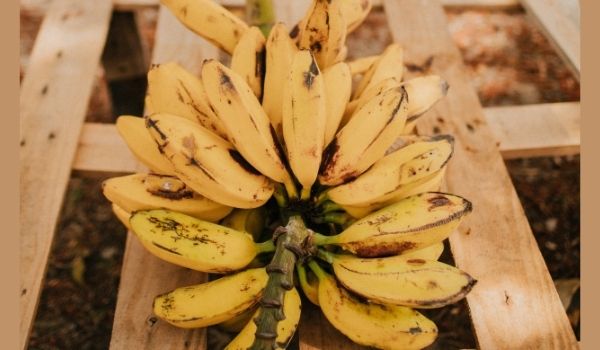
The delicious tropical fruit is a favorite among kids and a popular item in desserts. Donkeys enjoy them in a million different ways and reap the excellent health benefits of the fruit. Bananas are a rich source of potassium, which helps relax the blood vessels and promote the excretion of sodium, reducing blood pressure and regulating cardiac health.
Bananas also supply fiber, an essential nutrient that results in a feeling of fulfillment without adding too many calories. Other beneficial features include the promotion of gut health, blood sugar, and blood pressure regulation.
Both potassium and magnesium make bones strong and promote muscle contraction and relaxation. Bananas also supply vitamins C and B6, both essential to maintain a healthy body. Vitamin C strengthens the immune system, enhances the healing process, and protects the body against damage from free radicals. Similarly, vitamin B6 promotes brain development and white blood cell production, aids in weight loss, and offers protection against type-2 diabetes.
Although the health benefits of bananas have been studied in the context of human consumption, they provide these nutrients to donkeys as well. Although these equines fulfill most of their dietary requirements via hay and straw, they still need a healthy mix of vitamins and minerals to promote good health. Several food options fulfill these requirements. We will go over these ones by one.
Read: What Do Horses Eat?
What Should a Balanced Diet for Donkeys Look Like?
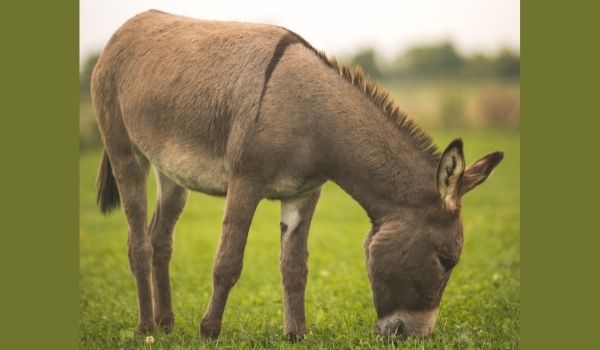
Now that the banana question is out of the way, another might pop up in your head. What exactly should I feed my donkey to keep it healthy and happy? Donkeys are easy to keep animals with not too many requirements. But they still require daily food, water, and supplements, among other things, to remain healthy and happy.
Donkeys do not consume their food in the form of full meals around given timings. Instead, they prefer to consume smaller portions of highly fibrous plant material throughout the day. Since they are susceptible to obesity if left to graze freely, a little food regulation and provision of the necessary nutrients can ensure your donkeys are in good health.
Straw
Donkeys fulfill most of their nutritive requirements by consuming straw and hay. Consider the fact that donkeys have evolved to forage on low-quality food throughout the day. By quality, we mean food that does not offer too many calories compared to the volume consumed. So, offering good quality barley straw is an excellent way to meet both psychological and dietary needs without risking obesity.
However, for the animals on a weight increase program or the geriatric ones, oat straw can be more beneficial owing to a higher nutrient content than barley. Thanks to the higher fibrous and lower energy content, wheat straw is another healthy option for the donkeys. But its consumption demands a healthy set of teeth, therefore should only be fed to younger donkeys with healthy teeth (most members of this species suffer from poor dentition as they grow older).
Hay
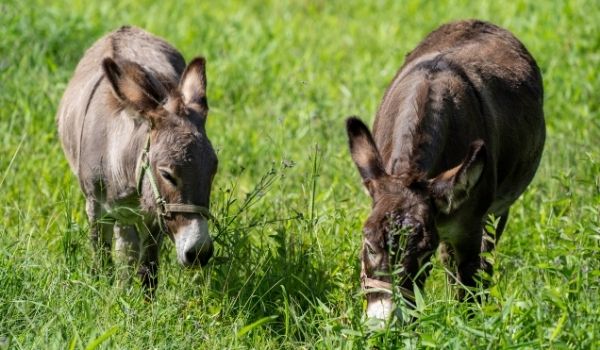
A delicate balance needs to be maintained between the percentages of straw and hay fed to the donkeys. The latter has more nutritional value and considering the propensity of donkeys to gain too much weight, their intake needs regulation. Seed and meadow hay are considered healthy options for your animal; however, the one procured from cow pastures may typically have higher nutrient value and, therefore, may only be fed in lower proportions compared to the other types.
The straw and hay content should fall between 70 – 75% and 25 – 30% during the summers, while to meet the higher energy demands of the winter season, the content should be flipped to 25 – 30% for straw and 50 – 75% for hay/fodder. The picture gets a little complicated when you consider the fact that donkeys prefer hay over straw. To regulate their feed, offer limited hay supplies and let them graze over straw ad libitum.
In the absence or limited supply of hay, owners can replace it with haylage. The former is partially dried grass, just like hay, with a higher moisture content (35 – 45 %) as compared to the latter (15%). Besides the risk factor of catching mold, haylage may also have varying degrees of nutrient richness, and therefore, you may have to adjust your forage mix to adapt to the equine’s needs.
|
|
Vitamin & Mineral Supplements
Although donkeys, especially those feeding off pastures, may fulfill their dietary requirements via forging, they may still need some essential vitamins and minerals. However, the vitamin level drops in the conserved forages, especially as time goes by. This is more pronounced in the winters when the nutrient levels of the feed are dropping.
Similarly, some donkeys may face calcium and phosphorus deficiency in their infancy, resulting in bone deformity and weakness. On the contrary, equids fed crop by-products with higher calcium to phosphorus ratio may affect their calcium absorption.
Experts, therefore, suggest vitamin and mineral supplements to counter possible deficiencies. Using an unmolassed mineral lick, designed especially for the equines, is a great way to meet their dietary needs.
Fruits & Vegetables
Feeding your donkey some occasional fruit and veggie treat is a good way to keep their dietary mix interesting. Also, it can be a wonderful way to make up for nutrient deficiency, especially the one they may have to encounter in winters and early spring. Bananas are favored by the donkeys for their flavor and easy digestion, but there are several other options that you could avail of.
You can feed the fruits and vegetables listed below, cut in the shape of sticks (to prevent choking), as safe treats to your donkeys.
- Bananas
- Apples
- Pears
- Carrots
- Swedes
- Turnips
- Wild Strawberries
The list may not be entirely exhaustive, and you can consult your vet to find out what else you could offer to your donkey. But it is just as important to know how much and how often you could offer these treats as it is to learn what you could feed them. Offering one vegetable or fruit treat per day, cut up in the form of sticks, fed through their regular feedlots, and not directly from your hand, unless training, should be just enough.
Water
Although donkeys have evolved in semi-arid conditions and they tend to tolerate thirst better than mules, their water requirements are nonetheless similar to horses. Access to clean drinking water is key to maintaining their good health. Besides providing free access to ample water supplies, maintaining the water temperature is another important consideration. Donkeys are very particular about the water temperature and would rather remain thirsty than drink from an icy trough.
For this reason, particularly in winters, it is important to check the water temperature and refill the troughs with warmer supply, with temperatures above 15° C.
Regulating the Feed
Donkeys generally do fine on their straw and hay diet, with some additional mineral licks and a healthy supply of clean drinking water. In winters, owners need to increase the quantity of hay being fed to the donkeys to make up for the additional energy demands and the nutrients lost in the forage over time. Donkeys that are allowed to forage in the open do not need additional hay and would do well on the barley/wheat straw or maize stover.
As an evolutionary process to avoid competition with the more powerful equine, the horse or mule, donkeys prefer fibrous forage and show lower tolerance for starch content. Therefore, they cannot be fed the same cereal-based feeds as horses. Also, to meet their evolutionary demands of grazing for longer hours (14 – 16 hours/day), owners should regulate their food consumption by limiting their access to pasture foraging and offering straw ad libitum.
The mineral licks provided to the donkeys should be unmolassed (to avoid developing laminitis), specifically designed for equines, and carry a statement of ingredients to ensure all their needs are being met. Offering occasional fruit or vegetable treat or a little grazing over the hedgerows can be useful in fulfilling their additional nutrient demands and encouraging the picky eaters to resume their eating. It is appropriate to introduce the new good item slowly, over a couple of days, instead of a sudden change.
Final Words
Donkeys are popular farm animals who may serve as pets or work animals. Owners may worry about what they could or could not feed them to keep them healthy. In their bewilderment, they do ask questions like, can donkeys eat bananas? The good news is, the little fellows benefit from consuming the delicious fruit, that too with its peels, to make up for their nutrient deficiencies. But well-meaning owners may put their health in jeopardy by letting them eat too much too often.
Donkeys have far fewer nutrient requirements than horses; therefore, regulating their feeding behavior can help maintain a healthy weight. Overeating can lead to conditions like laminitis and hyperlipemia, both very painful and difficult to maintain once set in. Watching their diet and using a body condition score to monitor their health are the good practices you need to maintain their health.

